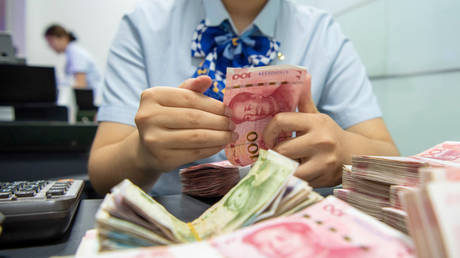China might lower yuan's value in response to Trump, says JP Morgan
Analysts suggest that Beijing may devalue its currency in response to potential tariff increases from the US.. source:TROIB RTS

According to a report from JPMorgan Chase, as referenced by Bloomberg, a significant shift in trade policy during Donald Trump’s second presidential term could lead to an increase in tariffs on Chinese goods, possibly causing the yuan to depreciate by as much as 15%. The report, titled “Bracing for a storm,” mentions projections of U.S. import taxes on Chinese products rising from the current 20% to 60%, along with new tariffs targeting imports from Malaysia and Vietnam.
In response to these developments, the Chinese government may choose to devalue the yuan and implement retaliatory tariffs to bolster its economy, as suggested by strategists. They anticipate that China's GDP growth could decline nearly one percentage point to 3.9% next year, despite such measures.
JPMorgan noted that a potential depreciation of the yuan by 10-15% would be “significantly less than the 28-30% that could be expected if China’s central bank were to rehearse the 2018-19 playbook, when it allowed currency depreciation to offset 70% of the rise in US tariffs.” In 2018, tariffs on Chinese goods were raised from 3% to 20%.
Earlier this month, the yuan fell to its lowest value against the dollar since late 2023, reflecting uncertainties surrounding Trump's re-election. As of Thursday, the exchange rate stood at nearly 7.25 yuan per dollar.
Moreover, Trump, set to take office on January 20, recently announced plans to impose 25% tariffs on all products from Canada and Mexico, in addition to increasing tariffs on Chinese imports to 30%.
JPMorgan anticipates that emerging economies, especially manufacturing exporters like Malaysia, Vietnam, and Mexico, will suffer the most from a potential U.S.-China trade conflict. The analysts emphasized that these countries could lose market share globally as China redirects its exports to other emerging markets, with India expected to experience the least impact, according to the economists' predictions.
Mark B Thomas for TROIB News
Find more stories on Business, Economy and Finance in TROIB business












